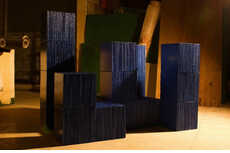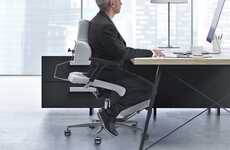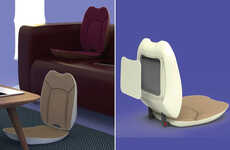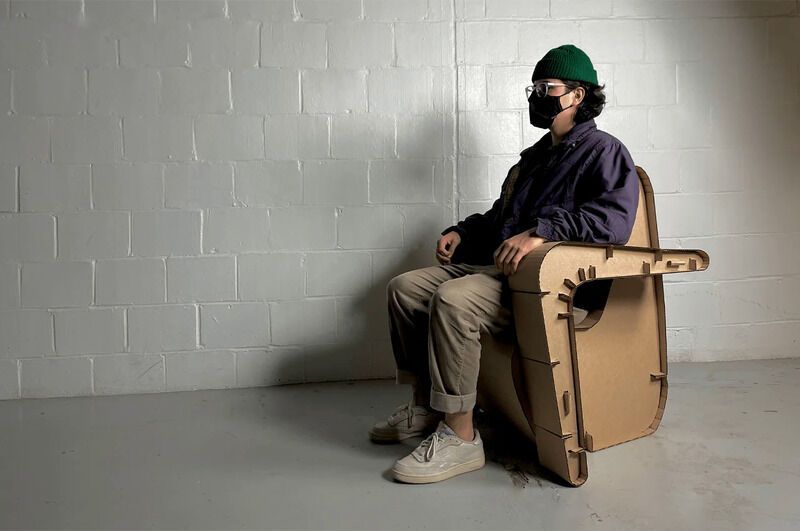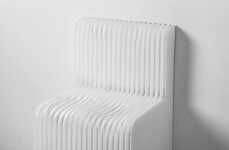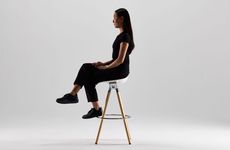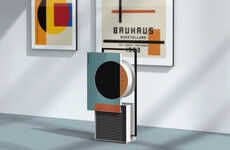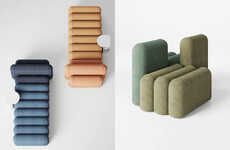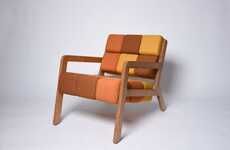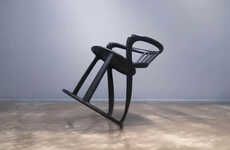
The Cardboard Chair Process Book by Lissette Romero is Informed
Michael Hemsworth — March 29, 2022 — Art & Design
References: lissettear.myportfolio & yankodesign
The Cardboard Chair Process Book has been designed by Lissette Romero as a seating solution that follows on anthropometric studies as well as client interviews to inform the shape and function of its construction. The chair is characterized by its corrugated cardboard construction that follows on the needs of the client to help them enjoy a supported and comfortable spot to sit. The chair pays distinct attention to the increased need for ergonomic furniture solutions as consumers spend increasing amounts of time sitting at home and/or the office during the workday as well as during their time off.
The Cardboard Chair Process Book was explained further by Romero who said, "The chair is to be tailored to [the client’s] body measurements, personal aesthetic, and tasks that they will be performing while seated. To achieve this, an anthropometric study of the client will be performed, seated tasks will be observed, and an interview will be conducted."
The Cardboard Chair Process Book was explained further by Romero who said, "The chair is to be tailored to [the client’s] body measurements, personal aesthetic, and tasks that they will be performing while seated. To achieve this, an anthropometric study of the client will be performed, seated tasks will be observed, and an interview will be conducted."
Trend Themes
1. Ergonomic Cardboard Furniture - There is an opportunity for brands to develop more comfortable and sustainable furniture solutions using cardboard materials.
2. Customized Seating Solutions - The trend towards personalized ergonomic seating solutions could disrupt the traditional furniture industry by offering bespoke and tailored designs for each client.
3. Sustainable Seating Solutions - Corrugated cardboard is an eco-friendly material with great potential for being used in furniture design, offering sustainable and affordable options for consumers.
Industry Implications
1. Furniture - The furniture industry could benefit from incorporating ergonomic and sustainable design practices, especially in the growing work-from-home market.
2. Architecture and Interior Design - As companies and individuals seek more sustainable and personalized design solutions, architects and interior designers could develop expertise in creating bespoke and environmentally-friendly spaces.
3. Consumer Goods - Brands could explore the potential of cardboard as a material for creating innovative and sustainable products, not only in furniture design but also in packaging, storage, and other fields.
6.3
Score
Popularity
Activity
Freshness


